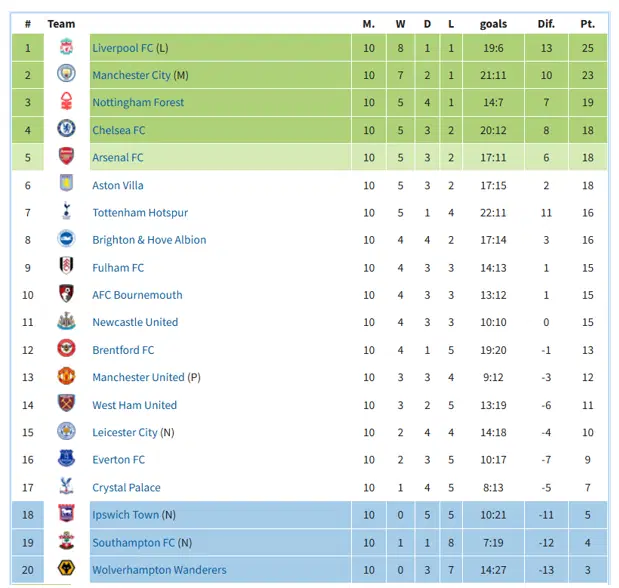The last international break of 2024 is finally behind us, and for Newcastle United, it was another opportunity for their international stars to shine on the global stage. With players representing their respective nations in critical matches, it was clear that the Magpies have talent capable of influencing games at the highest level. Yet, as the club returns to domestic duties, all eyes now shift to what is shaping up to be a season-defining few months for Newcastle United.
The next round of international fixtures won’t come around until mid-March 2025. Between now and then, Newcastle are scheduled to play a staggering 18 Premier League matches and could feature in up to three additional games in each domestic cup competition, provided they advance through the rounds. The sheer volume of games underscores how crucial the upcoming period will be in shaping the final outcome of the season.
But as fans look ahead to the busy schedule, a recent article in The Athletic has raised some thought-provoking questions about whether Newcastle’s fate this season might already be decided. Based on findings from an academic study, the article suggested that a team’s position in the Premier League table after the first 10 games offers a surprisingly accurate forecast of where they’ll finish come the end of the season.
For those who missed the piece, here’s the crux of the argument. Drawing on research by Clive Beggs, a professor at Leeds Beckett University, the study explored the predictive power of the Premier League table as the season unfolds. According to the findings, the league standings after 10 games provide a “reasonable” prediction of the final table, with the chances of teams dramatically improving—or worsening—their positions dwindling with each passing game week.
At the 10-game mark this season, Newcastle United found themselves in 11th place. If the study’s conclusions hold true, it suggests the Magpies might be in for a frustrating campaign in the league, potentially falling short of the heights they had hoped to achieve. But is it fair to assume that Newcastle’s story is already written?
To understand this better, it’s worth delving deeper into Beggs’ study. While the research does highlight the growing stability of league positions as the season progresses, it also acknowledges that the “points gaps” between teams play a critical role in determining how much movement is possible within the standings. In other words, it’s not just about a team’s current position—it’s also about how tightly packed the teams around them are.
And this is where this season’s Premier League has thrown a spanner into the works. After 10 games, there were only three points separating Chelsea in 4th place from Newcastle in 11th. That means eight teams were within one win of breaking into the coveted Champions League spots—a level of parity that is virtually unprecedented.
Looking back over the past decade, this level of congestion in the table after 10 games has only happened once before, during the 2020/21 season—the COVID-impacted campaign where the absence of fans and unusual scheduling led to some statistical anomalies. Typically, by this stage, the gap between 4th and 10th place is at least six points, if not more. The unusual closeness of the standings this season is a testament to how competitive the league has become, with teams regularly taking points off one another.
So, while the study offers valuable insights into long-term trends, it may not account for the unique circumstances of this particular campaign. With so many teams tightly bunched together, the idea that Newcastle—or any other club in the mid-table mix—cannot make significant gains seems overly simplistic.
Newcastle’s victory in their 11th league match against Nottingham Forest has already shown that they have no intention of settling for mediocrity. The Magpies are still very much in the hunt, and with key players returning from international duty and the squad refocusing on the domestic front, there’s every reason to believe that they can defy the odds.
The road ahead is undoubtedly challenging, with critical fixtures against West Ham and other top teams looming large. But the tightly packed nature of the table means that every game offers an opportunity to climb. With a bit of consistency and perhaps a touch of luck, Newcastle could still find themselves competing for European places come May 2025.
For now, the team must focus on the immediate task at hand: building momentum and turning St. James’ Park into a fortress as they prepare for their next league game. The season is far from over, and while some may point to studies and data to suggest otherwise, football has a way of defying logic. As the saying goes, it’s not over until it’s over—and Newcastle fans will be hoping their team writes a comeback story for the ages.



